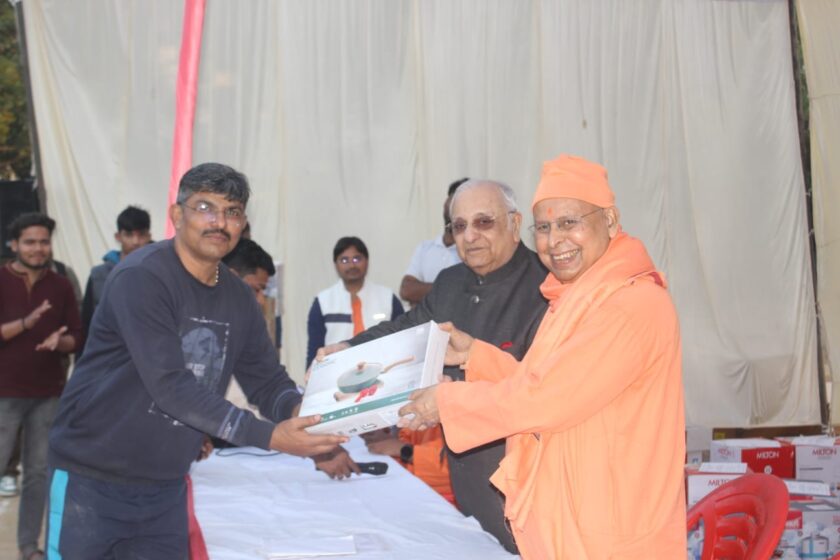— A Landmark in Urban Cleanliness and Waste Management
Lucknow: In a landmark stride toward sustainable urban development, the city of Lucknow marked a historic milestone with the inauguration of a 700-metric-ton fresh waste processing unit at the Shivri Solid Waste Processing Plant. The state-of-the-art facility was formally inaugurated by Urban Development Minister A.K. Sharma, with Mayor Sushma Kharkwal gracing the occasion as a special guest.
This new unit, with its cutting-edge waste treatment capabilities, completes the city’s capacity to scientifically process 100% of the approximately 2,000 metric tons of waste generated daily—solidifying Lucknow’s status as a “Zero Net Waste City.”
“A Proud Moment for Lucknow”
Speaking at the event, Mayor Sushma Kharkwal remarked:
“Today is not just about a facility; it is a testimony to Lucknow’s commitment to a cleaner and greener future. This success is the result of persistent efforts by the Municipal Corporation, growing public awareness, and solid technical backing. It’s a milestone in building a sustainable, livable city.”
The ceremony was attended by several dignitaries including local councilors, Shivri Gram Pradhan Ram Naresh Rajput, Municipal Commissioner Gaurav Kumar, Additional Commissioner Dr. Arvind Kumar Rao, Chief Engineer Mahesh Verma, senior municipal staff, and local residents.
Legacy Waste Project Sets National Benchmark
Recounting the challenges, A.K. Sharma highlighted that in 2022, a survey had identified 18.5 lakh metric tons of unprocessed legacy waste at the Shivri site, left behind by previous contractors—posing severe environmental and health risks.
In response, a comprehensive remediation plan worth ₹106.18 crore was rolled out, with ₹96.53 crore sanctioned under the SBM-1 (Swachh Bharat Mission) framework. The waste processing contract was awarded to M/s Bhumi Green Energy, which began operations on March 12, 2024.
As of now, 12.86 lakh metric tons of legacy waste have been scientifically processed, yielding recyclable materials such as RDF (Refuse-Derived Fuel), construction debris, bio-soil, and coarse waste fractions—all utilized through eco-friendly methods like co-processing, recycling, and controlled landfilling.

A Waste-to-Energy plant, based on the BOO (Build-Own-Operate) model, is currently under detailed project planning. In the interim, the NTPC-supported unit plays a pivotal role in managing fresh waste sustainably.
Reclaiming Land, Greening the Future
Minister Sharma also announced the reclamation of 25 acres of land previously covered by waste. The land is now repurposed for the new fresh waste facility, windrow composting pads, and green belt development—a shining example of environmental regeneration.
To ensure transparency and scientific rigor, reputed institutions such as NEERI (Nagpur), IIT Roorkee, and VJTI Mumbai are overseeing the project. Additionally, 47 CCTV cameras have been installed to monitor operations around the clock.
Youth Engagement and Civic Awareness
In a special segment of the event, students from City Montessori School visited the plant to observe the scientific waste processing in action. Interacting with them, Minister Sharma and Mayor Kharkwal emphasized the importance of waste segregation at source and nurturing environmentally responsible habits from a young age.
A Self-Reliant System for Urban Waste
Municipal Commissioner Gaurav Kumar confirmed that with three waste processing units of 700 MT each, the Lucknow Municipal Corporation has now achieved full scientific processing of all fresh waste generated by its combined permanent and floating population.
A Model for the Nation
Additional Municipal Commissioner Dr. Arvind Kumar Rao underscored how Lucknow’s waste management model aligns with circular economy principles, with reusable materials being reintegrated into the system—reducing landfill dependency, saving resources, and generating employment.
“What Lucknow has achieved is not just urban management but a replicable, scalable model for cities across India and beyond,” he said.
With its pioneering initiatives and visionary planning, Lucknow stands today as a national exemplar in urban waste management, combining technology, policy, and community participation to build a cleaner and more resilient future.









